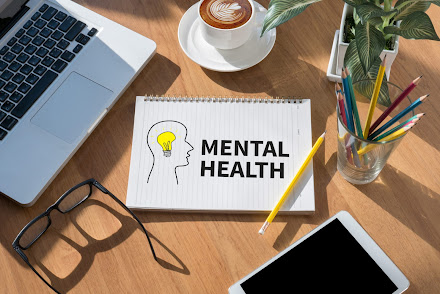Attention Deficit Hyperactivity Disorder (ADHD) is a
neurodevelopmental disorder that affects millions of people worldwide.
Characterized by a
persistent pattern of inattention, hyperactivity, or impulsivity, ADHD can
significantly impact a person's life. In this blog post, we'll delve into the
complexities of ADHD, exploring its symptoms, causes, and effective management
strategies.
Understanding the Symptoms
ADHD manifests in various ways, and symptoms can differ from
person to person. Common symptoms include:
·
Inattention: Difficulty focusing, easily
distracted, forgetful, and disorganized.
·
Hyperactivity: Excessive fidgeting, restlessness,
and impulsivity.
·
Impulsivity: Difficulty waiting for their turn,
blurting out inappropriate comments, and engaging in risky behaviors.
It's important to note that ADHD can present differently in
adults compared to children. While hyperactivity may be less prominent in
adults, symptoms like inattention and impulsivity can still significantly
impact their daily lives.
Causes of ADHD
The exact causes of ADHD are not fully understood, but it is
believed to be influenced by a combination of genetic, environmental, and
neurological factors. Research suggests that differences in brain structure and
function may play a role in the development of ADHD.
Diagnosis and Assessment
If you or someone you know is experiencing symptoms of ADHD,
it's crucial to seek professional evaluation. A qualified mental health
professional, such as a psychiatrist in Bhopal or psychologist, can conduct a
comprehensive assessment to diagnose ADHD. This assessment may involve
interviews, questionnaires, and potentially neuropsychological testing.
Effective Management Strategies
While there's no cure for ADHD, it can be effectively managed
with a combination of treatment approaches. These may include:
·
Medication: Stimulant medications are often prescribed
to help individuals with ADHD focus, reduce impulsivity, and control
hyperactivity.
·
Therapy: Cognitive-behavioral therapy (CBT)
can teach coping strategies for managing ADHD symptoms, improving
organizational skills, and enhancing self-esteem.
·
Behavioral
Interventions:
Behavioral interventions, such as parent training or classroom accommodations,
can help individuals with ADHD develop self-management skills and improve their
interactions with others.
·
Lifestyle
Changes: Adopting
healthy lifestyle habits, including regular exercise, a balanced diet, and
adequate sleep, can support mental health and well-being.
Living with ADHD
Living with ADHD can be challenging, but with the right
support and management strategies, it's possible to lead a fulfilling life.
It's important to remember that ADHD is not a reflection of a person's
character or intelligence. By understanding the disorder and seeking
appropriate treatment, individuals with ADHD can thrive and reach their full
potential.
Also Read: Psychiatric Doctors Bhopal
Conclusion
ADHD is a complex neurodevelopmental disorder that affects
millions of people. By raising awareness and understanding ADHD, we can break
down stigma, provide support, and help individuals with ADHD navigate their
unique challenges and achieve success.






